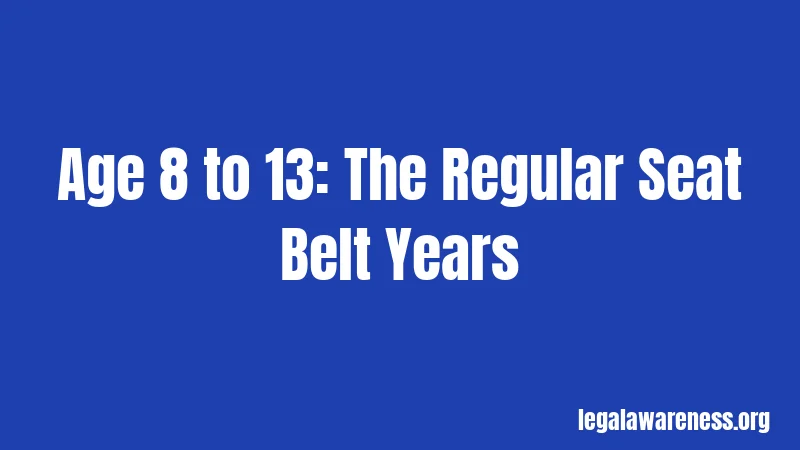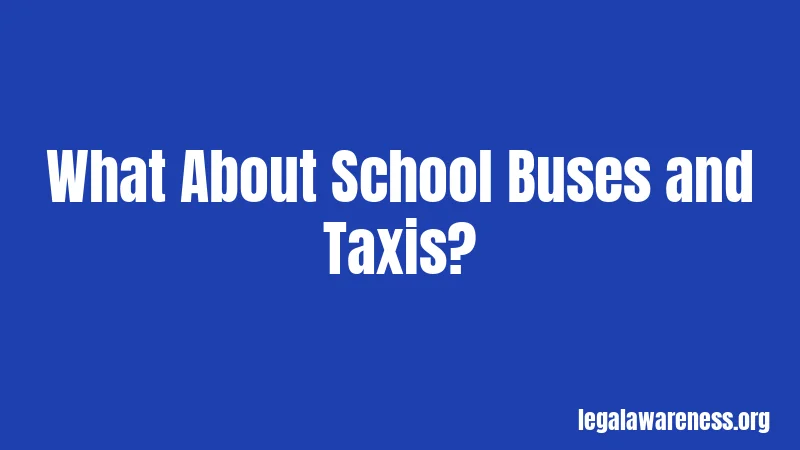Car Seat Laws in Massachusetts (2026): Your Complete Safety Guide
Most parents think they know the car seat rules. They’re usually wrong about at least one thing. Massachusetts has specific laws that protect kids from birth through age 13, and the penalties for breaking them hit hard. Let’s break down exactly what you need to know.
Here’s the deal: one mistake could cost you a fine. More importantly, it could cost your child their safety.
What Makes Massachusetts Car Seat Laws Different?

Massachusetts doesn’t mess around with child safety. The state requires specific restraints based on your child’s age and height. These aren’t just suggestions.
The main rule is simple. Kids under 8 years old OR under 57 inches tall must ride in a federally approved car seat or booster. Notice the “OR” there? That’s important. Your child meets just one of those requirements, they can move to a regular seat belt.
Think of it like this: height matters more than age. A tall 7-year-old might be ready for a seat belt. A short 9-year-old might still need a booster.
The Basic Requirements (Birth to Age 8)
Rear-Facing Car Seats (Newborns and Infants)
All babies start in rear-facing seats. No exceptions.
Massachusetts law requires children under 1 year old to ride rear-facing. But here’s what most people don’t know: experts recommend keeping kids rear-facing way longer than that. Until age 2 at minimum. Some seats let kids stay rear-facing until 35-40 pounds.
Why does this matter? A rear-facing seat protects your baby’s head, neck, and spine way better than forward-facing. We’re talking about reducing injury risk by 75% for kids under 3.
Don’t rush to flip that seat around just because your toddler’s legs look cramped. Honestly, that’s probably the most common mistake parents make.
Forward-Facing Car Seats (Toddlers and Preschoolers)
Once your child outgrows the rear-facing limits, they move to a forward-facing seat with a harness. This typically happens between ages 2-4, but check your seat’s manufacturer limits.
Keep them in this seat until they max out the height or weight limits. Many parents switch to boosters too early. Don’t be one of them.
Your child should stay harnessed as long as possible. Period.
Booster Seats (Young Kids)
Booster seats are the bridge between car seats and regular seat belts. Massachusetts law requires boosters for kids under 8 OR under 57 inches tall.
Here’s the thing: most kids hit 57 inches around age 8-10. But every kid grows differently.
Wondering if your child still needs a booster? Check how the seat belt fits. The lap belt should sit low across the hips, not the stomach. The shoulder belt should cross the chest and shoulder, not cut across the neck or face.
If the belt doesn’t fit right, your kid needs the booster. Simple as that.
Age 8 to 13: The Regular Seat Belt Years

Your child graduates from the booster at age 8 OR 57 inches. But they’re not done with safety rules yet.
Kids ages 8-13 must wear properly fitted seat belts. And Massachusetts strongly recommends they stay in the back seat until age 13.
Why the back seat? Front airbags can seriously hurt smaller bodies. The back seat reduces fatal injury risk by nearly 50% for kids ages 4-8.
Stay with me here: just because your child CAN sit in front doesn’t mean they SHOULD.
Where Should Your Child Sit?
Back seat. Every time. Until age 13.
Massachusetts doesn’t legally require this, but safety experts are crystal clear. The back seat is safer for kids under 13. No debate.
Never put a rear-facing seat in front of an active airbag. That’s not just dangerous—it can be deadly.
What About School Buses and Taxis?

Hold on, this part surprises most people.
School buses are exempt from car seat laws in Massachusetts. The state considers school buses safe enough without individual restraints. This is controversial, but it’s the law.
Taxis? Totally different story. You need to provide a car seat for your child in taxis. The taxi driver won’t have one. No exceptions for special events or emergencies. Police don’t care if you’re late to the airport.
Seriously.
Penalties: What Happens If You Break the Law?
The fine is $25 per unrestrained child. That’s it.
Sounds small, right? But here’s what really matters: that $25 fine is nothing compared to the injuries your child could suffer in a crash.
Massachusetts treats this as a secondary offense for seat belts (meaning you can’t be pulled over just for not wearing one). But for kids under 13, it’s a primary offense. Cops can pull you over specifically for an improperly restrained child.
The driver pays the fine. Not the kid. Not the parent in the passenger seat. The person behind the wheel.
Car Seat Installation: Getting It Right
Most car seats are installed incorrectly. Like, seriously—studies show 3 out of 4 car seats have some kind of installation error.
You’re not alone if you struggle with this.
Here’s what to do: Get your seat checked by a certified technician. Most Massachusetts towns offer free car seat inspections through police or fire departments. They’ll make sure it’s installed correctly and show you how to do it yourself.
Honestly, this is probably the single best thing you can do for your child’s safety.
Call ahead to schedule an appointment. Bring your car seat manual and vehicle manual. Takes about 20 minutes. Totally worth it.
Buying a Car Seat: New vs. Used
New is always safer. But if you need to buy used, follow these rules:
Make sure the seat has never been in a crash. Even minor accidents can damage the internal structure. You can’t always see this damage.
Check the expiration date. Yep, car seats expire. Usually 6-10 years after manufacture. The date is on a label somewhere on the seat.
Ensure all parts are there and working. Missing pieces are deal-breakers.
Get the instruction manual. If it’s lost, you can usually download it online.
Avoid seats that have been recalled. Check the NHTSA website to see if your model has any recalls.
Not sure about a used seat’s history? Skip it. The risk isn’t worth the savings.
Car Seat Expiration and Recalls
Wait, car seats expire?
Yes. The plastic weakens over time. Harnesses wear out. Safety standards change.
Check your seat for an expiration date. It’s usually stamped on the back or bottom. If you can’t find it, contact the manufacturer.
Recalls happen too. Even with brand-new seats. Visit the NHTSA website and enter your seat’s model number. If it’s recalled, the manufacturer usually offers a free replacement or repair.
Special Circumstances and Exemptions
A few exemptions exist:
Cars made before July 1, 1966 (these often don’t have seat belts at all). Kids with medical conditions certified by a doctor in writing.
That’s basically it. No exemptions for short trips. No exemptions for special occasions. No exemptions because Grandma doesn’t have a car seat.
Winter Coats and Car Seats: A Safety Risk
Here’s something most parents don’t know: winter coats and car seats don’t mix.
For the harness to work properly, it needs to fit snugly against your child’s chest. Puffy coats create too much space between the harness and your child. In a crash, your child could slip right out.
So what do you do? Preheat your car. Dress your child in thin layers. Put the coat on backwards after buckling them in. Use a blanket over the harness.
Pretty straightforward, right?
What to Do After a Car Accident
If you’re in an accident with your child in the car, here’s what to do:
Check for injuries immediately. Call 911 even if everyone seems okay. Kids can have internal injuries that aren’t obvious.
Take photos of the scene. Get driver information and witness contacts.
Call your insurance company. Keep records of all medical visits.
Replace your car seat. Even if you don’t see damage, the seat might be compromised. Check with your insurance—many policies cover car seat replacement after accidents.
Consider talking to a car accident lawyer, especially if your child was injured.
Tips for Parents and Caregivers
Keep the chest clip at armpit level. This is crucial for proper restraint.
Teach older kids why seat belts matter. They’re more likely to buckle up if they understand.
Never put the shoulder belt behind the back or under the arm. This defeats the whole purpose.
Double-check the installation every few months. Things can loosen over time.
If you’re letting grandparents or other caregivers drive your kids, make sure they know how to install the seat correctly. Do a practice run.
Common Questions Parents Ask
Okay, let’s talk about the questions that come up all the time.
When exactly do I turn the seat around?
When your child reaches the maximum height or weight for rear-facing on YOUR specific seat. Not when they turn 1. Not when their legs look cramped. Check your manual.
Can my 7-year-old sit in the front seat?
Legally? Maybe, if they’re over 57 inches. Should they? No. Keep them in back until 13.
Does a car seat violation affect my insurance?
Usually not if it’s your only violation. But why risk it?
What if my child doesn’t want to use their car seat?
Not their choice. You’re the parent. Safety isn’t negotiable.
Can I use a travel vest instead of a traditional car seat?
Yes, the RideSafer travel vest is legal in Massachusetts. It meets federal safety standards.
Frequently Asked Questions
What age can my child stop using a car seat in Massachusetts? Your child can stop using a car seat at age 8 OR when they reach 57 inches tall, whichever comes first. After that, they must use a regular seat belt until age 13.
Are rear-facing car seats required by law in Massachusetts? Massachusetts law requires children under 1 year old to ride rear-facing, but experts recommend keeping kids rear-facing until at least age 2 or until they reach the seat’s maximum rear-facing limits.
Do I need a car seat in a taxi in Massachusetts? Yes. Massachusetts law requires car seats in taxis just like any other vehicle. There are no exemptions for taxis, limos, or ride-share services. You must provide the car seat.
How much is the fine for not having a car seat in Massachusetts? The fine is $25 per unrestrained child. This applies whether your child isn’t in a car seat at all or is in the wrong type of seat for their age and size.
Can my child ride in the front seat in Massachusetts? Children under 13 should always ride in the back seat, though it’s not legally required after age 8 or 57 inches. The back seat is significantly safer for kids under 13.
Final Thoughts
Car seat laws in Massachusetts exist for one reason: keeping kids safe. The rules are straightforward once you understand them.
Under 8 or under 57 inches? Car seat or booster required. Age 8-13? Seat belt in the back seat. Everyone else? Buckled up, always.
Get your seat checked by a certified technician. Don’t use expired or recalled seats. Keep kids rear-facing as long as possible. And for the love of everything, keep them in the back seat until they’re teenagers.
Now you know the basics. Stay safe out there.
References
- Massachusetts General Laws Chapter 90, Section 7AA – Child Passenger Restraints
- Massachusetts General Laws Chapter 90, Section 13A – Seat Belt Law
- Car Seat Laws in Massachusetts – Mass.gov Official Guidelines
- National Highway Traffic Safety Administration – Car Seat Recommendations
- Safe Kids Worldwide – Massachusetts Car Seat Safety
